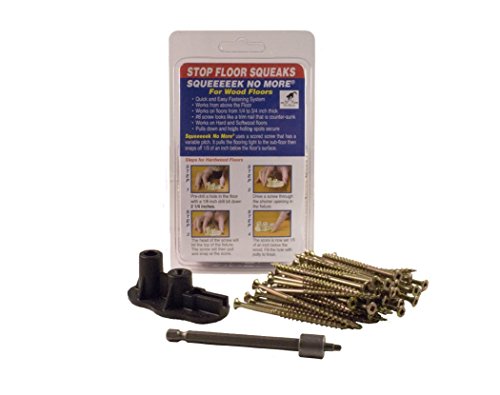Put yourself in the buyer’s shoes and you’ve got the answer. Buying a house is considered to be a long-term investment and is expensive. So, it is expected that a buyer will take their time inspecting the property, looking out for ominous cracks and suspicious creaks.
Unless the buyer is specifically after a fixer-upper, the squeaky floors are going to garner at least a mention during their inspection. So, what are your options and how to tackle this situation so that you can sell your house without investing too much in repairs? All this and more I discuss in this article.

Most buyers will at least mention a squeaking floor. Some may be content with assurances that all is fine. Others may request proof that the floor is safe or a lowered sale price in anticipation of repairing a squeaky floor. Some buyers will be put of completely. Few will be attracted by the squeaking.
Squeaky Floor Will Concern Most Buyers
As mentioned, a squeaky floor will be noticed. For most buyers, it will be a concern. Nobody wants squeaky floors. The creaking and squeaking of the floors every time you walk on them can be annoying and very disturbing to the home’s inhabitants and neighbors.
Moreover, most people think a squeaky floor is a sign of a weak building structure or infestation of termites. Hence, their apprehension in buying the house with the creaking floorboards.
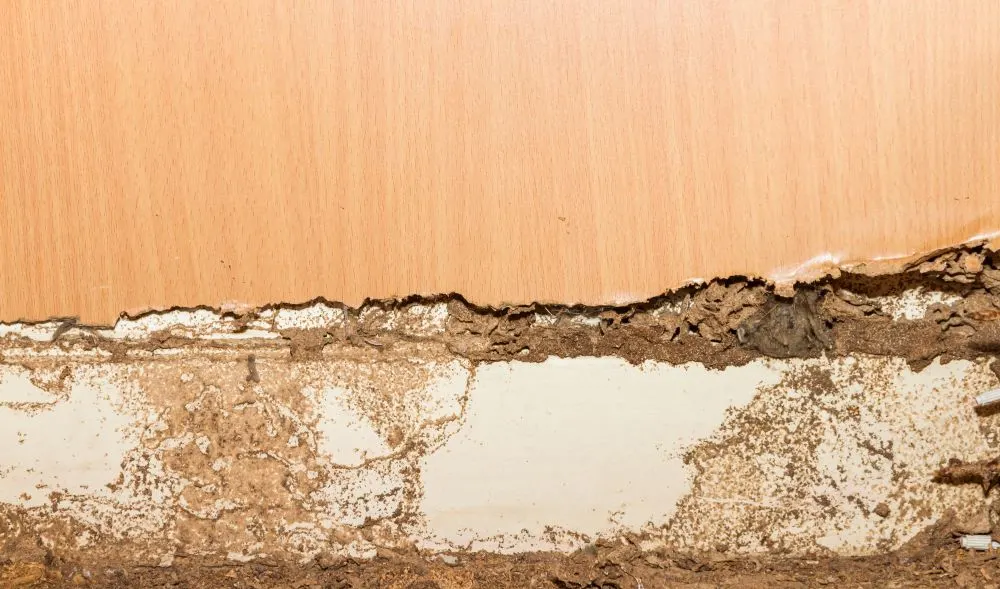
The truth is that most of the time, floors squeak because of weather-related wear and tear and not dire structural damage. Of course, enough wear and tear can lead to structural damage, so it’s probably always prudent to be a little worried about squeaky floors.
Seasonal changes result in the wood contracting and expanding. This is usually unavoidable especially if your floor is made of solid wood. Wood floors shrink in cold and dry air and expand in warm and wet air. The contraction and expansion make the boards loose and cause the floor to squeak and creak when you walk across it.
Some buyers understand this is seasonal and don’t pay much heed to it beyond asking if you’ve had them checked out or if the squeaks come and go throughout the year. But for some, a house with squeaky floors is a complete no-no. They think that squeaky floors might be a sign of something much more serious that will require costly repair and maintenance in the future.
Not only that, but if the squeaky floor is accompanied by other issues like spongy or bouncy feeling then this might indicate some problem with the foundation. And no buyer would want to buy a house with problems that will only get worse with time and will incur extra cost.
If you are selling an apartment in a multi-story building, then squeaky floors will cause discomfort to potential buyers. Apart from expenditure, squeaky floors might cause future problems between the buyer and the neighbor downstairs who will get affected by the constant creaking of the floorboard.
For a buyer, squeaking floors mean hassle and never-ending expenditure in the future. So, it can be an annoying deterrent and might stop your house from getting sold.
Some Buyers Will Be Attracted by the Squeaks
When are squeaky floors never off-putting? When they are attached to a fantastic one-of-a-kind 100-year old home with a design and location unlike anything else on the market. In such a case, some creaking floors add to the charm and are worth the investment of repairing them if they turn out to be more dangerous than annoying.
Even if your house is not that old, some buyers like the idea of owning a house that sounds really old.
So, if the squeaks are minimal and you are sure that they won’t become a serious issue in the future, then you might want to postpone fixing the floor. Who knows, with the right market, the squeaking floors could make your house very popular in the real estate market.
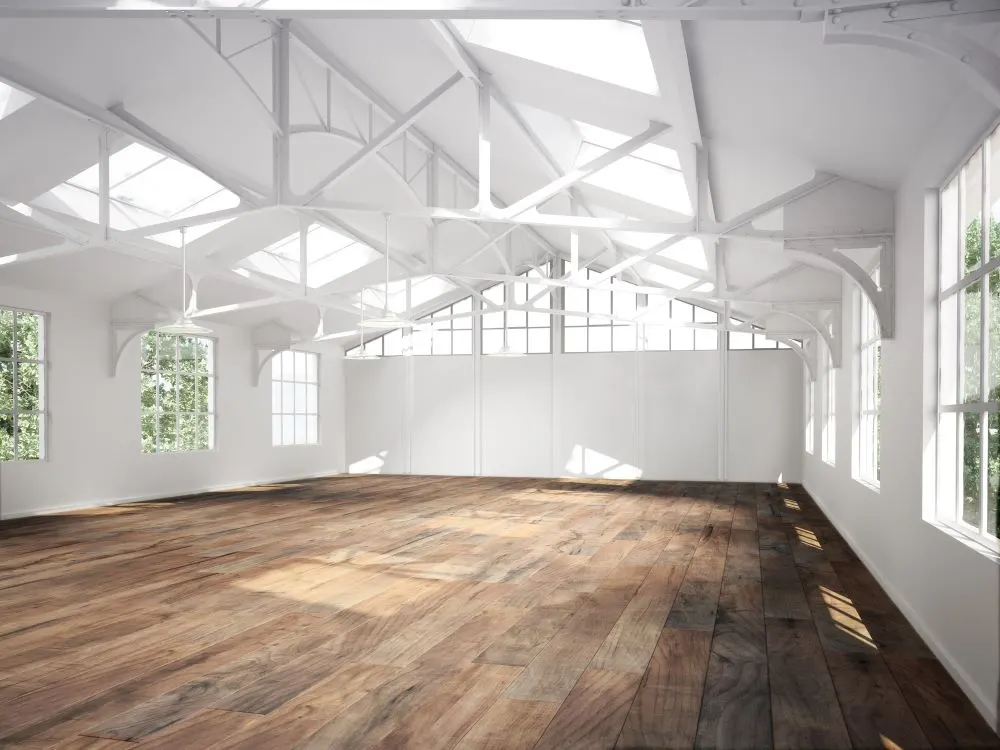
Recommendation: Get an Inspection
Buyers are afraid to buy houses with squeaky floors because they think squeaky floors indicate structural issues. You know that the squeaks in the house are minimal and hardly dangerous, but how to convince the buyer? Get an inspection done.
If you get an inspection certificate that says the squeaks are not indications of structural issues, then buyers will be a lot happier about buying the house with the squeaks. You will also ensure that you do not have people low-balling you with offers that are your asking price less the potential costs of repairing the floor.
Before you put the house on the market, you can get a professional house inspector in and have your house checked from attic to basement. A house inspection helps you to determine the selling price and also whether your house requires some maintenance work before it’s up for sale.
If you get a home inspection certificate then you can show it to prospective buyers and assure them that the squeaks are harmless and should not be the cause of not buying a perfectly good house.
Who Can Inspect Squeaking Floors?
So, who should you call for inspecting your squeaking floors?
Firstly, some flooring companies have certified floor inspectors who will check your floors and give you a certificate.
You can also contact a local home inspector.
There are reputable non-profit organizations like the National Institute of Certified Floor Covering Inspectors (NICFI) who can inspect but can’t certify. But an inspection by a NICFI certified expert is good as the certificate.
You can also apply for a Certificate of Occupancy with the local government agency or building department. A Certificate of Occupancy will certify that a building is compliant with all the required building codes and laws and is habitable.
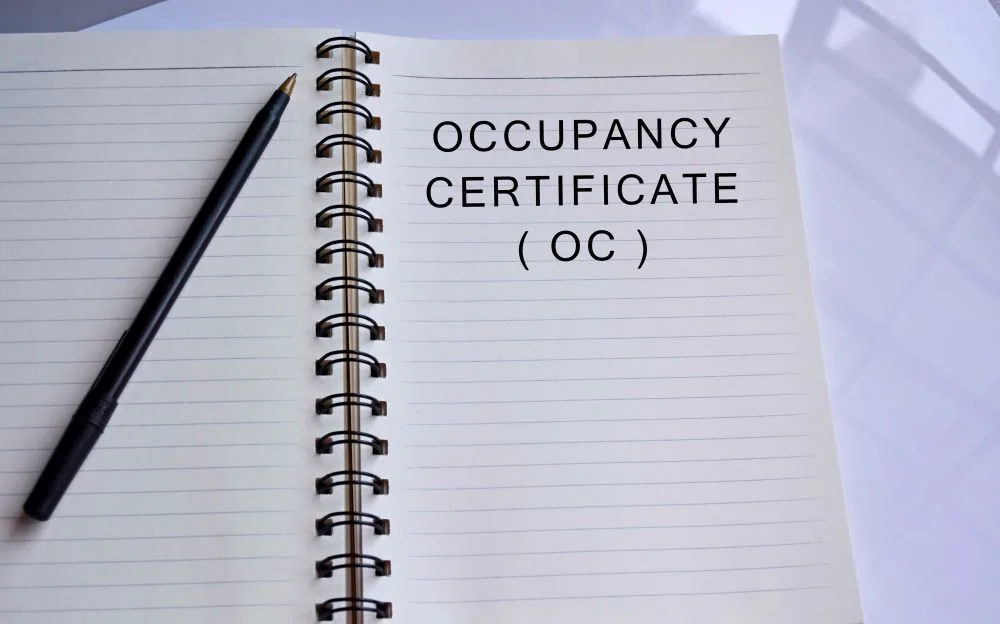
Nowadays, buyers hire their own home inspectors before making a purchase. This can create some tension if you are concerned that their inspector is biased, shaving your own inspection certificate to make comparisons can be helpful in this regard.
Should You Fix the Squeaks?
You cannot hide squeaking and creaking of the floor from a potential buyer. This is something that must be disclosed upfront. If the inspection certificate states that everything is fine with the floor, then a potential buyer might be willing to buy with the squeaks.
The home inspection will tell you exactly where the problem is. Usually, squeaking happens when the floorboard is loose and is brushing against another board, the subfloor, joists, or fasteners.
Many factors contribute to the floorboard being loose like extra space between the joists and the subfloor, wrong nails being used for securing the floor to the joists, or just poor workmanship. Depending on the cause, you can determine the remedy and get it fixed accordingly.
A home is an investment of a lifetime and people will be living there with their family for decades. Naturally, buyers will be cautious and might hesitate to go for a house with squeaking and creaking floors.
If you fix the squeaks before putting the property on the market then you will not miss out on potential buyers and your property will not suffer from bad word of mouth. So fixing the squeaks almost always be a good idea.
If you are hesitant to do the repairs immediately, you can always put your house up for sale and see how well it does with the squeaks. If you keep losing buyers, then you can take the time to repair them. I would also recommend talking to your real estate agent about this.
Who Can Fix Squeaking Floors?
Who can fix squeaking floors depends on the reason why your floors are squeaking. If the squeaking is not very serious, then maybe it can be fixed by you just putting in a carpet or a rug.
But if the problem requires structural renovation then it is better that you call a professional. It is imperative that you call someone who’s certified and knows how to get the work done durably and safely.
Several well-known floor repair and maintenance companies have in-house certified floor experts. Their experts are also specialized in a specific type of flooring like hardwood, vinyl, laminate, etc. You can choose according to your need.
If the problem can be solved by tightening a few screws in the joists then you can call your local handyman.
If you are up to it you could even try fixing the squeaky floor yourself using snap-off screws.
- This kit contains qty 50 screws are for stopping squeaks between or on the joist.
- Plus one driver bit and easy to follow instructions.
- Using this kit stops the movement of floor boards and squeaks.
- The screw is scored so when driven through the fixture it snaps 1/4" below the top of the hardwood.
Last update on 2024-03-28 / Affiliate links / Images from Amazon Product Advertising API
If you are unsure who to call, you can hire a general contractor. They will either have an in-house flooring expert (if they are a larger company), or they will have a sub-contractor that they frequently work with and trust.
Sometimes, a building has a pre-approved list of contractors that you can call for remedying squeaking and creaking floors.
But before calling, you must check their certifications and their credentials.
Alternative: Lower Sale Price
Prices of properties are steep everywhere. In a market where the prices are so high, if you are willing to lower the sale price then you will find potential home hunters showing an interest in your property.
This is also a feasible way of dealing with the problem of squeaky floors. You could lower the price to account for the cost of repairs that the new owner will be facing. This way you won’t have to go through the hassle of getting it fixed yourself.
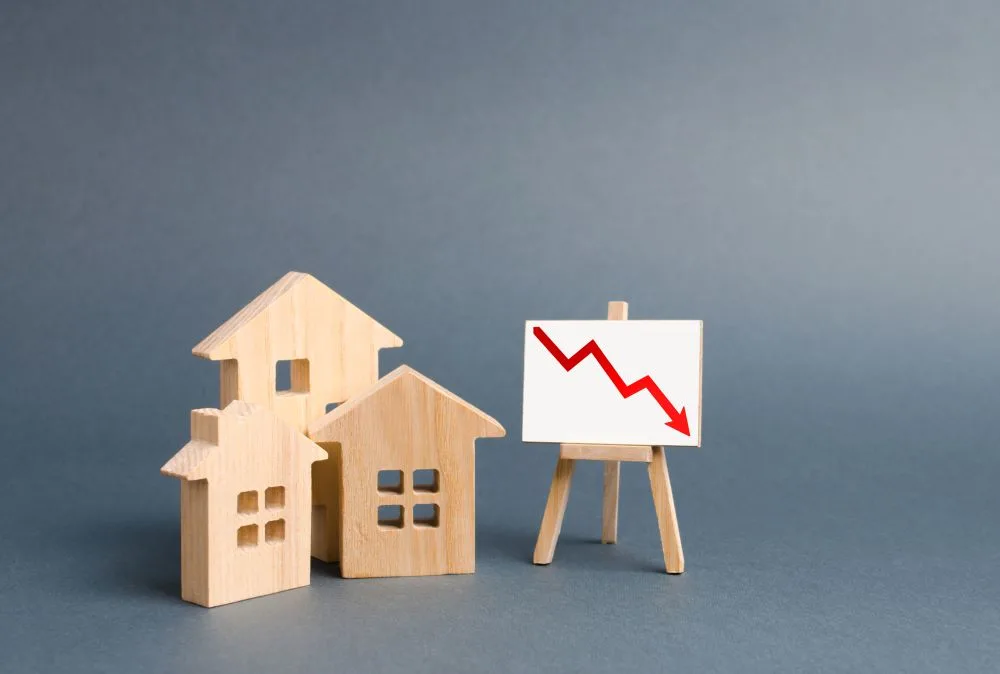
Right from the beginning be upfront with potential buyers about this problem and also mention it in the purchase agreement. This way a buyer will be aware of this and will consider this while buying.
How Much Should Be Deducted From the Price?
If you intend to sell the house or apartment without repairing the floor but the floor will have to be repaired by the new owner, then it is common practice to deduct this cost from the sale price. This does not apply to non-problematic squeaky floors—if the squeaks are not indications of serious issues and are merely an annoyance, you can still sell at full price.
The cost of repairing a squeaking floor depends on the nature of the problem, the extent of the problem, and the type of flooring you have. This makes it difficult to estimate how much you would need to deduct from the selling price.
However, to give you a ballpark figure, anything invasive, like repairing a floor joist, can cost from $6,000 to $10,000 (depending on the size of the room). Less invasive repairs may be something between $200 to $1000.
Sources
https://www.signaturecustomflooring.com/why-your-hardwood-flooring-expert-should-be-certified/
https://www.forbes.com/advisor/home-improvement/how-much-does-floor-repair-cost/
https://www.investopedia.com/terms/f/fixing-up-expenses.asp
https://www.armstrongflooring.com/commercial/en-us/resources/flooring-faqs/floorscore-faqs.html
https://en.wikipedia.org/wiki/Certificate_of_occupancy
https://www.thebalance.com/should-i-fix-up-my-home-or-try-to-sell-as-is-1798973


